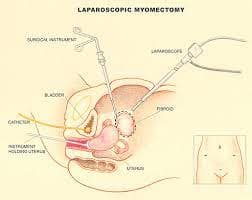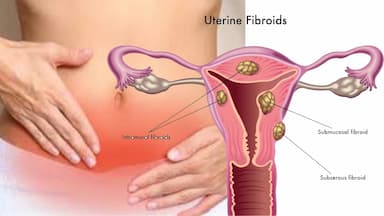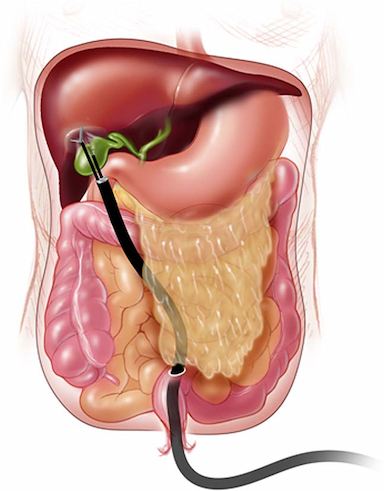
The Latest Advances in Urology: What Patients Need to Know
01 Sep, 2023
 Obaidullah Junaid
Obaidullah JunaidIntroduction:
Urology, the medical specialty focusing on the urinary system and male reproductive organs, has witnessed remarkable advancements in recent years. These breakthroughs have revolutionized diagnosis, treatment, and patient care. From minimally invasive procedures to personalized therapies, the field of urology is at the forefront of medical innovation. In this article, we'll explore some of the latest advances that patients need to know to make informed decisions about their urinary health.
Transform Your Beauty, Boost Your Confidence
Find the right cosmetic procedure for your needs.

We specialize in a wide range of cosmetic procedures

Cutting-Edge Innovations:
1. Robot-Assisted Surgery: The integration of robotic technology has transformed the landscape of urological surgeries. Surgeons can now perform complex procedures with enhanced precision and control, leading to shorter recovery times and reduced complications.
2. Targeted Therapies: Advancements in genetic research have paved the way for personalized treatment plans. Genetic profiling allows urologists to tailor therapies to individual patients, increasing the effectiveness of treatments while minimizing side effects.
3. Focal Therapy for Prostate Cancer: Traditional treatments for prostate cancer often result in significant side effects. Focal therapy, a minimally invasive approach, targets only the cancerous areas of the prostate while preserving healthy tissue. This technique reduces the risk of complications such as erectile dysfunction and urinary incontinence.
4. Laser Technology in Kidney Stone Treatment: Laser lithotripsy has emerged as a game-changer in treating kidney stones. This non-invasive technique employs laser energy to break down stones into smaller fragments, making their removal less invasive and more effective.
5. 3D Printing for Prosthetics: Urology has embraced 3D printing to create customized prosthetics for patients with urinary incontinence or erectile dysfunction. These prosthetics offer better comfort, fit, and functionality, significantly improving patients' quality of life.
Most popular procedures in
Laparoscopic Cystect
Upto 80% off
90% Rated
Satisfactory

Laparoscopic Myomect
Upto 80% off
90% Rated
Satisfactory

LAVH
Upto 80% off
90% Rated
Satisfactory

NOTE
Upto 80% off
90% Rated
Satisfactory

CABG
Upto 80% off
90% Rated
Satisfactory

Promising Treatments:
1. Immunotherapy for Bladder Cancer: Immunotherapy has shown remarkable results in treating advanced bladder cancer. By boosting the body's immune response, these treatments can effectively target and destroy cancer cells while minimizing damage to healthy tissue.
2. Gene Editing for Genetic Disorders: Gene editing techniques like CRISPR hold immense potential in correcting genetic mutations responsible for congenital urological conditions. While still in experimental stages, these treatments offer hope for future generations.
3. Microbiome and Urinary Health: Research into the urinary microbiome has unveiled its role in various urological conditions, including urinary tract infections (UTIs) and bladder disorders. Manipulating the microbiome may lead to innovative preventive and therapeutic strategies.
Can follow: Preventing Kidney Stones: Tips for a Healthy Lifestyle in India
Patient-Centric Care:
1. Telemedicine and Remote Monitoring: The rise of telemedicine has enabled urologists to provide consultations, monitor post-operative recovery, and manage chronic conditions remotely. This convenience is especially valuable for patients with limited mobility.
2. Pain Management Strategies: Advancements in pain management techniques have reduced discomfort during and after urological procedures. These strategies include nerve blocks, local anesthesia, and non-opioid pain medications.
3. Psychological Support: Urological conditions can impact patients' mental health. Many urology practices now incorporate psychological support and counseling as part of comprehensive patient care.
4. Urological care: Urological care is a medical specialty focused on diagnosing and treating urinary system and male reproductive organ disorders. Urologists provide tailored interventions for better health and well-being.
How can we help with the treatment?
If you're on the lookout for treatment in India, Thailand, Singapore, Malaysia, UAE, and Turkey, let Healthtrip be your compass. We will serve as your guide throughout your medical treatment. We'll be by your side, in person, even before your medical journey commences. The following will be provided to you:
Global Network: Connect with 35+ countries' top doctors. Partnered with 335+ leading hospitals.
Comprehensive Care: Treatments from Neuro to Wellness. Post-treatment assistance and Teleconsultations
Patient Trust: Trusted by 44,000+ patients for all support.
Tailored packages: Access top treatments like Angiograms.
Real Experiences: Gain insights from genuine patient testimonials.
24/7 Support: Continuous assistance and emergency help.
Our success stories
In conclusion, the field of urology is experiencing rapid advancements, benefiting patients through innovative treatments and improved care. Staying informed about these breakthroughs empowers patients to make educated decisions about their urinary health. As research continues to push the boundaries of what's possible, the future of urology holds even more promising possibilities for patients around the world.
Wellness Treatment
Give yourself the time to relax
Lowest Prices Guaranteed!

Lowest Prices Guaranteed!



